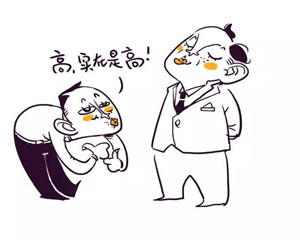古代寓言原是民间口头创作,文学体裁的一种。含有讽喻或明显教训意义的故事。它的结构简短。主人公可以是人,可以是动物,也可以是无生物。多借用比喻手法,使富有教训意义的主题或深刻的道理在简单的故事中体现,而还需要自己去理解,思考,这就是和西方寓言的不同之处。

《古代寓言·奉承》
鲁有迂滑二叟,踞石而谈。
迂叟曰:“余有百金,以十之二予若,若趋承予否?”
滑叟曰:“物不均,不得趋承!”
“然则平分之?”
曰:“物之均,不得趋承!”
“然则全予乎?”
曰:“物全归,不用趋承。”
——《艾子外语》
Will you Flatter me?
A rich man and a poor man were talking together.
"I have a hundred ounces of gold," said the rich man. "If I give you twenty, will you flatter me?"
"It would not be fairly shared, would you flatter me then?"
"We would be equal. I would not flatter you."
"And if I give you all the gold, how then?"
"If I had all the gold, I would have no deed to flatter you."
Ai Zi Wai Yu
(杨宪益、戴乃迭 译)
更多精品翻译素材,敬请关注可可英语。











